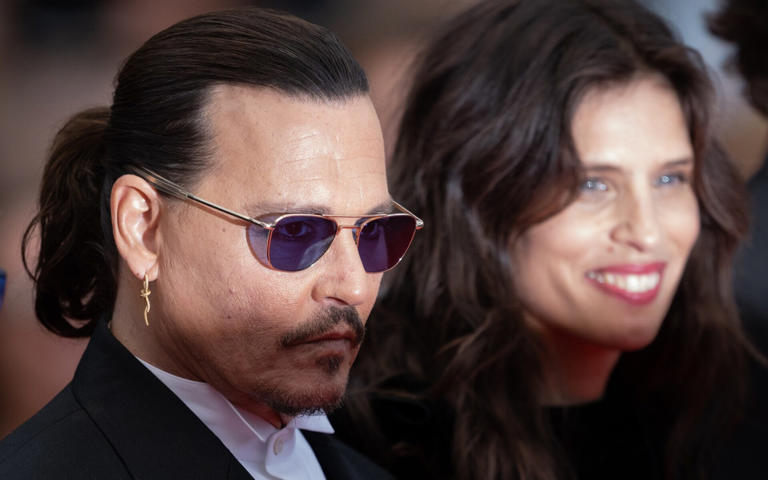
Unveiling the Controversy: The MeToo-Defying Director Who Cast Johnny Depp
- Entertainment
- 17 May 2023
- No Comment
- 152
Johnny Depp’s highly anticipated return to the Cannes Film Festival has generated its fair share of attention, but it seems that the actor’s presence is not the only captivating aspect of his latest project. Enter Maïwenn Le Besco, the director of Depp’s new film “Jeanne du Barry,” who is no stranger to controversy and has made headlines for all the right and wrong reasons.
While Thierry Fremaux, the head of Cannes, tried to steer the conversation away from Depp’s personal issues, urging journalists to focus on the talented director instead, Maïwenn has a knack for grabbing attention. Known as one of France’s most talked-about figures, she has always embraced publicity, regardless of its nature.
In March, Maïwenn allegedly assaulted Edwy Plenel, the editor-in-chief of Mediapart, in a restaurant. She nonchalantly admitted to the assault during a chat show appearance, stating, “Do I confirm that I assaulted him? Yes.” Plenel, who described the incident as damaging and traumatic, is now suing her for damages.
The tension between Maïwenn and Depp during the filming of “Jeanne du Barry” has also been a subject of speculation. Rumors circulated that she cut most of his dialogue, although she partially denied it, emphasizing her fascination with Depp’s ability to convey emotions through his face and gaze, like a silent actor. She also acknowledged that their collaboration was often challenging, pointing out cultural differences between American and French filmmaking approaches.
Maïwenn’s personal life has been as controversial as her professional career. She first gained attention as a child actress, driven by her mother’s influence. At the age of 15, she began a relationship with the influential French director Luc Besson, who was 29 at the time. They married when she turned 16 and had a daughter together. Besson even admitted that the relationship in his film “Léon” was inspired by their own controversial union, further blurring the lines between art and reality.
Despite their subsequent separation, Maïwenn maintains a friendship with Besson. Her alleged assault on Plenel was speculated to be linked to stories published by Mediapart regarding rape accusations against Besson by several women, although no charges have been substantiated.
While some may look to Maïwenn as a feminist icon, her views have proven divisive. She has been critical of feminists, describing them as women who do not like men. She has also expressed skepticism about the #MeToo movement, stating that she suspects late-night encounters with men are not solely for discussing roles.
Yet, Maïwenn’s filmmaking achievements cannot be ignored. Her 2011 film “Polisse” won the Jury Prize at Cannes and delved into the complexities of the Child Protection Unit in the Paris police force. Despite her controversial viewpoints, she remains proud of her work and finds a connection between herself and Jeanne du Barry, the subject of her latest film.
As “Jeanne du Barry” makes its Cannes debut, it remains to be seen how it will be received by audiences and critics. Regardless of its reception, one thing is certain: Maïwenn will continue to be a prominent and talked-about figure in contemporary French cinema, overshadowing even the notorious Johnny Depp. And that is precisely how she prefers it.


